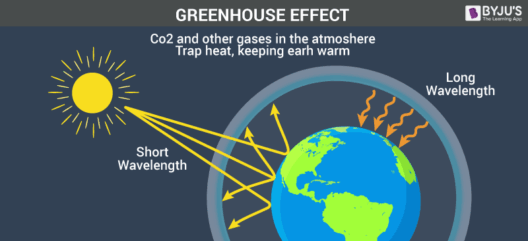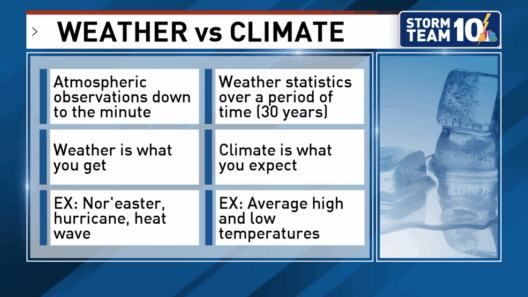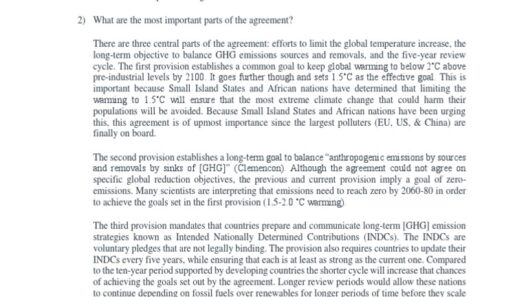Climate change stands as one of the most pressing challenges of our time. The scientific consensus is clear: the planet is warming at an unprecedented rate due to human activities. Understanding how to mitigate this crisis is not merely an option; it is an imperative that demands immediate attention and decisive action. Below is a comprehensive exploration of effective strategies to halt global climate change.
Understanding the Science of Climate Change
Before delving into actionable strategies, it is essential to comprehend the underlying science of climate change. The Earth’s climate operates as a complex system, influenced by numerous factors including greenhouse gas emissions, land use changes, and natural phenomena like volcanic eruptions. The primary culprit in our contemporary crisis is the excess carbon dioxide (CO2) and other greenhouse gases produced by anthropogenic activities—primarily the burning of fossil fuels for energy. These gases create a “greenhouse effect,” trapping heat in the atmosphere and leading to global warming, rising sea levels, and more frequent extreme weather events.
Transitioning to Renewable Energy Sources
One of the most significant actions to combat climate change is a robust transition towards renewable energy sources. This shift entails moving away from fossil fuels towards sustainable energy options such as wind, solar, hydroelectric, and geothermal power.
Harnessing Solar Power
Solar energy represents one of the most accessible and scalable forms of renewable energy. By installing solar panels on rooftops and using solar farms, we can effectively harness the sun’s immense power. Government incentives, subsidies, and technological advancements have made solar energy increasingly viable for individuals and businesses alike.
Investing in Wind Energy
Wind energy, captured through turbines, is another potent tool in the renewable energy arsenal. Regions with significant wind potential can substantially decrease reliance on fossil fuels by harnessing this clean energy source. Innovations in turbine technology have also increased efficiency and capacity, making wind energy a cornerstone of the future energy grid.
Promoting Energy Efficiency
While transitioning to renewable energy sources is essential, improving energy efficiency in homes, industries, and transportation systems is equally crucial. Energy-efficient appliances, enhanced insulation, and tactical building designs can significantly reduce energy consumption and lower greenhouse gas emissions. Businesses can also adopt practices that minimize energy waste, leading to better resource management and cost savings.
Transforming Transportation
The transportation sector is a major contributor to carbon emissions. Addressing this sector is vital for climate action. Transitioning to electric vehicles (EVs) represents a significant step forward. These vehicles produce zero tailpipe emissions and, when charged from renewable energy sources, can dramatically reduce the carbon footprint associated with transportation.
Enhancing Public Transport
Encouraging the use of public transport can also significantly derail reliance on single-occupant vehicles. Investments in robust public transportation systems, including buses, trains, and subways, can facilitate a considerable reduction in urban traffic and pollution levels. Additionally, encouraging walking and cycling through the implementation of safe infrastructure can further diminish carbon emissions.
Practicing Sustainable Agriculture
Food production is intricately linked to climate change. Agricultural practices contribute to greenhouse gas emissions through deforestation, methane emissions from livestock, and excessive fertilizer use. Therefore, shifting towards sustainable agricultural practices is paramount.
Adopting Regenerative Farming Techniques
Regenerative agriculture focuses on restoring soil health and increasing biodiversity. Techniques such as crop rotation, cover cropping, and agroforestry can enhance soil carbon sequestration, reducing atmospheric carbon levels. Moreover, these practices can improve resilience to climate extremes, protecting food systems and livelihoods.
Reducing Food Waste
A staggering amount of food is wasted globally, exacerbating climate change. Involving consumers, farmers, and retailers in food waste reduction strategies is critical. Initiatives such as better food distribution, consumer education, and sharing surplus food with those in need can help mitigate the environmental impact of food waste.
Engaging Communities and Raising Awareness
Collective action starts with grassroots movements. Educating communities about climate change and sustainable practices can stir local engagement and foster a sense of responsibility. Workshops, public forums, and community gardens can build awareness and mobilize citizens to take action.
Advocacy and Legislative Action
For substantial change to occur, advocacy at the governmental level is essential. Engaging in advocacy efforts to influence policies and legislation targeting climate change can amplify the impact of grassroots initiatives. Supporting policies that prioritize renewable energy, carbon pricing, and conservation efforts can help shape a sustainable future. Mobilizing public support for such causes can drive politicians to take meaningful action.
The Role of Economics in Climate Solutions
Transitioning to a sustainable economy requires understanding the economic implications of climate change. Investing in green technologies and infrastructure can lead to job creation and economic growth. Recognizing that climate action can be an economic driver is critical in gaining widespread support for initiatives. Green jobs in renewable energy, energy efficiency, and sustainable agriculture present opportunities that align economic development with environmental stewardship.
Conclusion: Every Action Counts
Ultimately, the fight against climate change is multifaceted and demands coordinated efforts at individual, community, corporate, and governmental levels. While the enormity of the challenge can be daunting, every effort counts. Whether it is adopting energy-efficient practices, advocating for sustainable policies, or supporting renewable energy initiatives, collective action can steer the world towards a more sustainable path. In this fight, every action not only matters but is vital to securing a livable planet for future generations.








